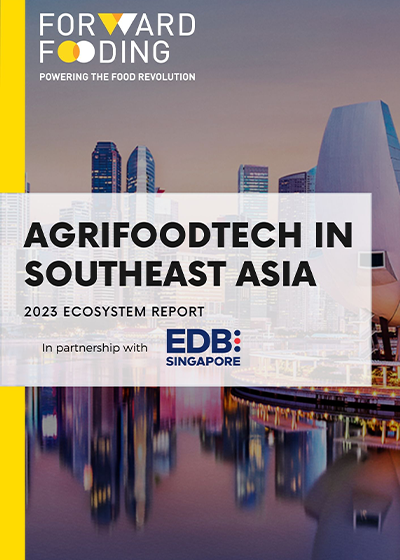- Singapore is strengthening its position as a prominent leader in FoodTech innovation.
- The Singapore government’s significant investment in the sector is making it a leading destination for alternative protein companies.
- Global FoodTech innovators like Corning Life Sciences and ScaleUp Bio are among those setting up shop.
Inside a lab on the west coast of Singapore, the future of food production is being developed — or fermented, to be more precise.
As scientists take readings from an array of temperature-controlled, stainless-steel bioreactors, there is a shared feeling of anticipation and excitement, knowing that the fermentation technology being developed could be the solution to feeding the world’s growing population.
The company is ScaleUp Bio, a local contract development and manufacturing organisation that provides submerged microbial and precision fermentation for FoodTech startups.
Launched in 2022, ScaleUp Bio is the result of a joint venture between global nutrition leader ADM and Nurasa, which is wholly owned by Singapore’s global investment company Temasek.
The innovative technology ScaleUp Bio is developing represents an efficient process for the production of essential food ingredients such as proteins. In the long term, this will reduce costs compared to traditional agricultural methods and help make food production more sustainable.
This is critical due to the world’s growing population, the impact of global warming, and the urgent need to reduce global carbon emissions. Currently, food systems account for 70 per cent of the water extracted from nature and 60 per cent of biodiversity loss, according to a report by Deloitte. They also generate up to one-third of greenhouse gas emissions from human activities.









